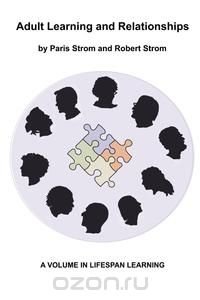A volume in Lifespan Learning The communication and technology revolution presents each age group of adults with new expectations for learning. This book describes how education for young adults (20 to 40 years of age), persons of middle age (40 to 60 years of age) and older adults (age 60 +) can be differentiated to fulfill changing role demands emerging in response to social transformation. Developmental tasks for a society of longevity are defined including why youth should be seen as essential sources of learning for adults. Themes for each generation are school, work, family, and personal identity. The way to ensure consideration of cultural evolution and cultural preservation is for intergenerational communication to become a common obligation. Reliance on age-segregated communication is popular and comfortable because peer conversations have greater agreement and less uncertainty. However, this practice prevents reflection on views regarded as important by other age groups.... Это и многое другое вы найдете в книге Adult Learning and Relationships (Paris S. Strom)
Adult Learning and Relationships Paris S. Strom
Подробная информация о книге «Adult Learning and Relationships Paris S. Strom». Сайт не предоставляет возможности читать онлайн или скачать бесплатно книгу «Adult Learning and Relationships Paris S. Strom»
